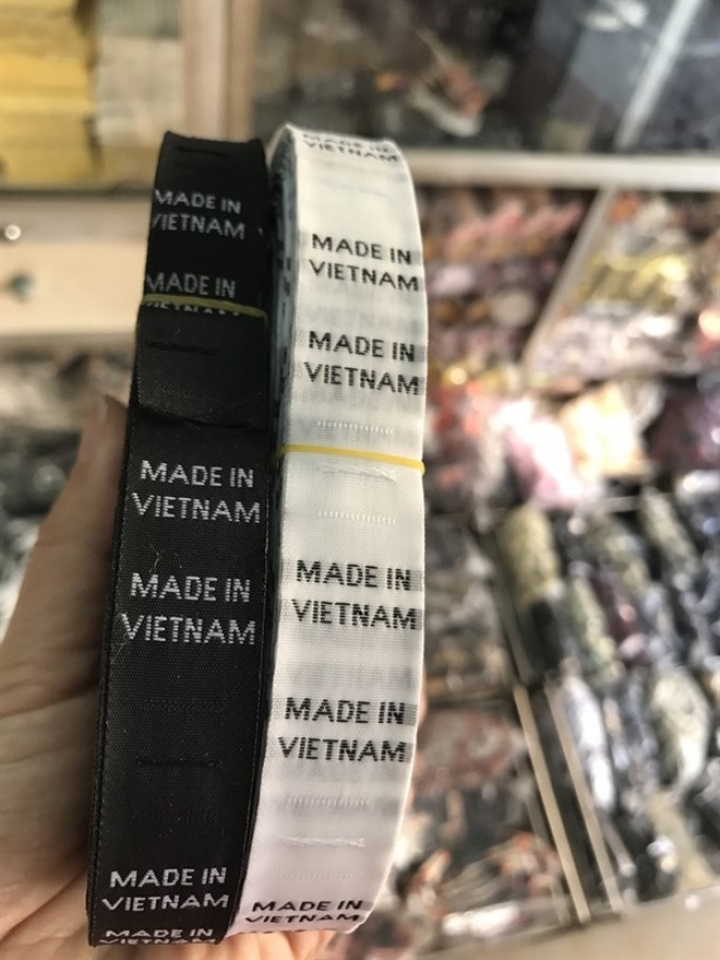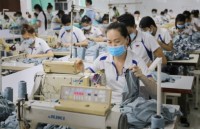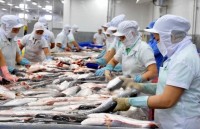
Ministry warns of increasing trade fraud via “made-in-VN” labelling
Latest
| Related News | |
| Vietnam officially begins mango exports to US | |
| Exports bring home 20 billion USD in January | |
The labeling of products as “Made-in-Vietnam” aimed to benefit from free trade agreements to which the country is a member and to avoid trade defence mechanisms by importing countries.
 |
| "Made in Vietnam" labels. Detailed regulations for labeling “Made in Vietnam” for products needed to be raised prevent origin frauds. (Photo: toquoc.vn) |
The department said that origin fraud would not only negatively affect the products and the local industry but also undermine the competitiveness of made-in-Vietnam products. It added that a number of traders remained unaware of the impact of origin fraud on the country’s production.
Vietnam does not have regulations on labeling products as "Made-in-Vietnam", thus, consumers did not know whether the products were truly made in Vietnam or not.
Therefore, detailed regulations for labeling products as “Made in Vietnam” are needed to create a legal framework preventing fraud as well as protecting local production and consumers.
Most recently, the Ministry of Industry and Trade urged supervision to be enhanced on certificates of origin for Vietnamese electric bikes over worries about fraud after Vietnam’s electric bike exports to the European Union increased sharply coinciding with the European Commission’s imposition of anti-dumping duties on products from China.
The ministry said that it is pressing to develop regulations on labeling, in which products must meet certain criteria.
It added that many countries had detailed regulations about labeling their products such as Switzerland’s regulations for watches, the US’ for automobiles and garment products and New Zealand’s for wine.
The criteria could be developed for labeling products as ‘Made in …’, ‘produced in…’, ‘designed by/in…’, ‘assembled in…’, ‘processed in…’, ‘packaged in…’ or ‘imported by/for…’.
Many countries impose heavy punishments for violations. For example, producers who labeled ‘Made in Italy’ for leather products which did not meet established criteria could be fined up to 100,000 EUR (113,000 USD). In Canada, any violations which caused misunderstanding about products could be fined up to 15 million USD or even imprisonment from one to 14 years.
According to the Ministry of Industry and Trade, the labeling would first be on a voluntary basis, adding that producers must be able to prove that the products met the established criteria when required. Later, the labeling could be compulsory for several products.
 | Import-export turnover likely to hit US$500 billion in 2019 The total turnover of Vietnam’s import-exports is expected to reach US$500 billion this year, according to the General Department of Vietnam Customs. |
 | Aquatic exports record two-digit growth in January Vietnam raked in 700 million USD from aquatic exports in January, a year-on-year rise of 15.2 percent, according to the Vietnam Association of Seafood Exporters ... |
 | Shrimp exports expected to bring in 4 billion USD in 2019 Vietnam’s shrimp exports are expected to increase to more than 4 billion USD in 2019 thanks to free trade agreements, said the Vietnam Association of ... |































